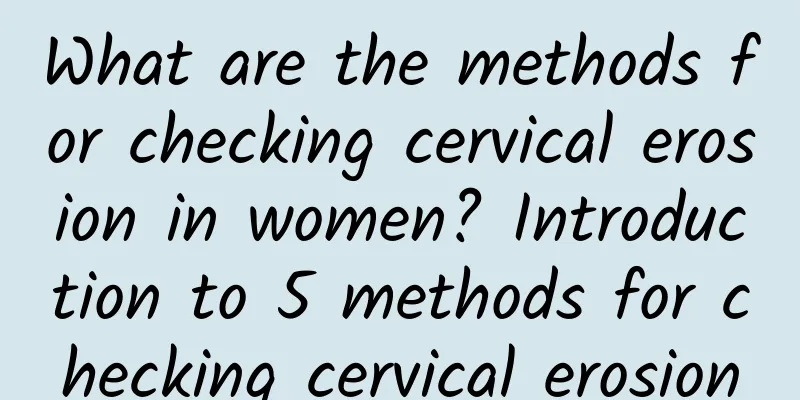What should I do if I have abnormal menstruation after wearing an IUD?

|
What should I do if I have abnormal menstruation after wearing an IUD? Clinically, intrauterine device refers to the placement of an intrauterine contraceptive device. After the placement of an intrauterine contraceptive device, menstrual abnormalities are caused by reasons such as the body not yet fully recovered, local infection, endometrial polyps, etc. It can be treated by strengthening life care, oral medication, surgery, etc. 1. The body has not fully recovered: After the placement of the intrauterine contraceptive device, it will cause changes in the intrauterine environment, making it impossible for the fertilized egg to implant normally, thus playing a contraceptive role. This operation is an invasive operation, and the soft tissue in the uterus cannot immediately return to normal in a short period of time, so it may affect the normal shedding of the endometrium and cause abnormal menstruation. Generally speaking, after the body has fully recovered, this phenomenon can gradually decrease and disappear. At this time, you should maintain a reasonable lifestyle to help your body recover. 2. Local infection: After the placement of the intrauterine contraceptive device, if personal hygiene care is not strengthened, infection may occur. Inflammation will constantly stimulate the endometrium, manifesting as lower abdominal pain, changes in menstrual cycle, abnormal menstrual flow, etc. Amoxicillin capsules, cefuroxime granules, cefuroxime axetil granules and other drugs can be used for treatment under the guidance of a doctor. 3. Endometrial polyps: The cause of this disease is related to excessive estrogen levels. After the disease occurs, it will cause compression to the surrounding tissues, affecting the normal structure and physiological function of the uterus, leading to menorrhagia, prolonged menstruation, shortened menstrual cycle, etc. When the surgical conditions are met, it can be treated by endometrial polypectomy. In addition to the common causes mentioned above, if it is caused by uterine fibroids, it can be treated through hysterectomy under the guidance of a doctor. If you have any discomfort, you should go to the hospital's gynecology department in time. |
<<: Symptoms of premature ovarian failure
>>: Is ovulation bleeding a sign of pregnancy?
Recommend
How to determine if a miscarriage is complete?
To determine whether a spontaneous abortion is co...
What are the obvious symptoms of vulvar leukoplakia?
Vulvar leukoplakia is a common gynecological dise...
Ke Nianxuan gained 10 kg after taking medication for hyperthyroidism
Young women are more prone to hyperthyroidism. Fe...
What are the prevention methods for uterine fibroids?
What preventive measures do you know about uterin...
High-quality public hospitals for miscarriage treatment
Abortion is not unfamiliar to most people. There ...
Reasons why women often experience dysmenorrhea during their menstrual cycle
It is very common for women to experience dysmeno...
What causes vulvar leukoplakia and how to treat it
Vulvar leukoplakia is a common skin disease chara...
What are the symptoms of adenomyosis cancer?
Adenomyosis doesn't sound that scary. But if ...
What are the harms of long-term amenorrhea to the body?
What harm does long-term amenorrhea do to the bod...
What are the precautions for women to treat vulvar leukoplakia? Women should pay attention to two major matters when treating vulvar leukoplakia
In our lives, many women will have some gynecolog...
Why does cervical erosion not heal again and again?
If cervical erosion is treated in time, recovery ...
How can women avoid pelvic peritonitis?
I believe that many people are already familiar w...
Analysis of the causes of cervicitis caused by drug abuse
Cervicitis is caused by many factors. We must pay...
The dangers of ectopic pregnancy should be noticed from the symptoms
Ectopic pregnancy is a major killer of women and ...
What are the symptoms of uterine fibroids? What should I do if I have uterine fibroids?
Uterine fibroids are very harmful to patients. As...









